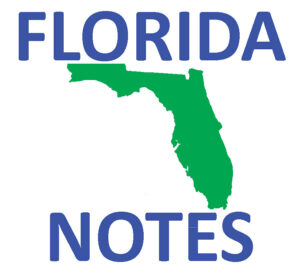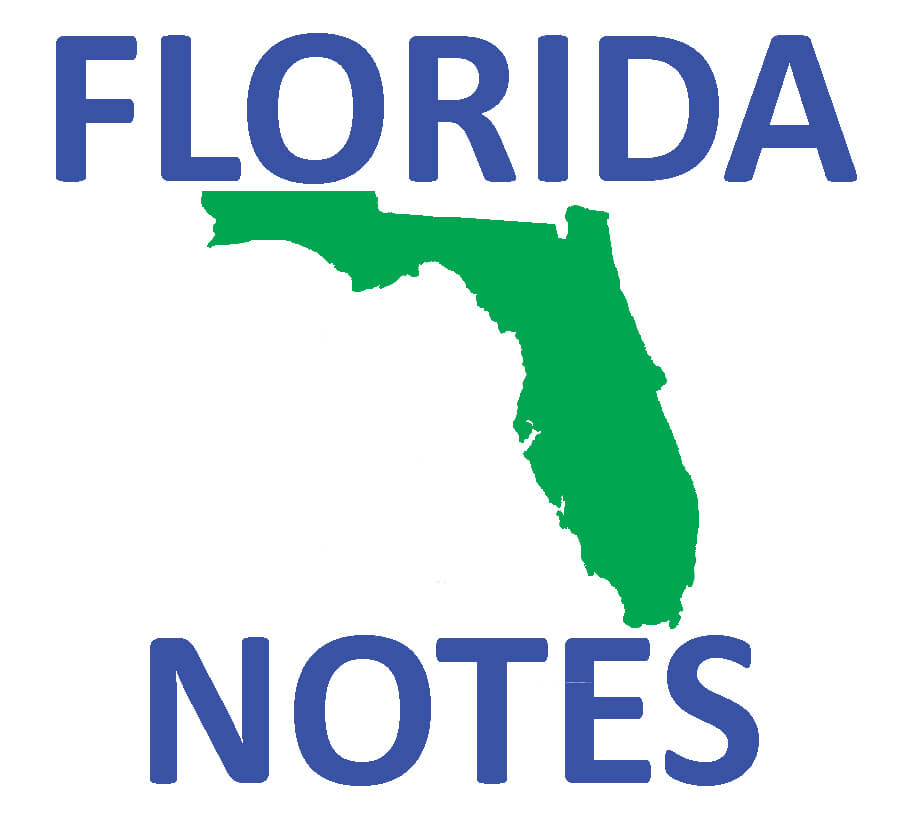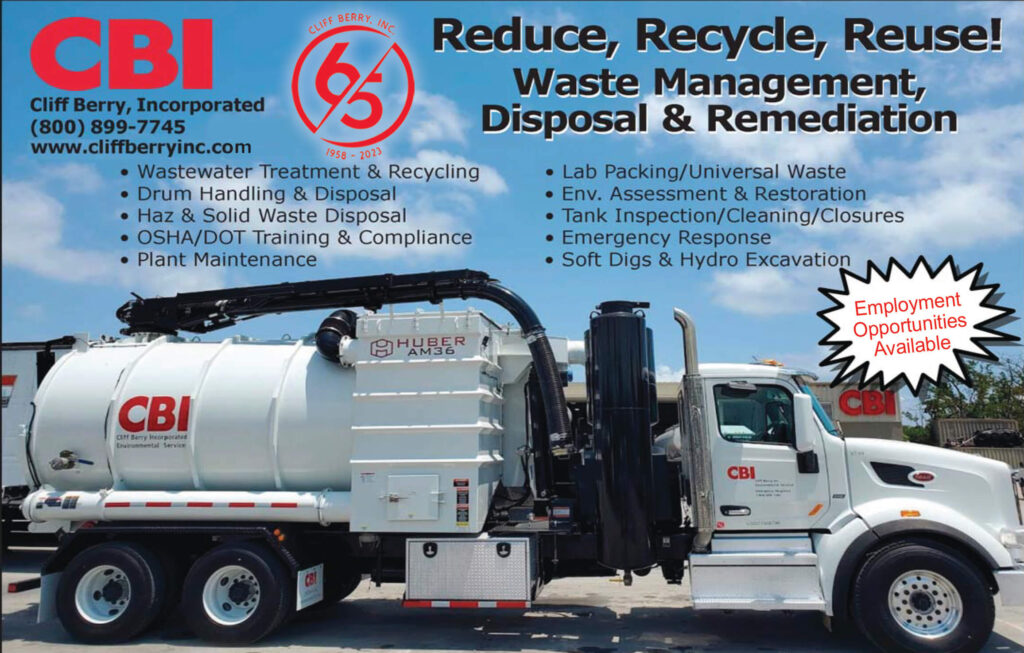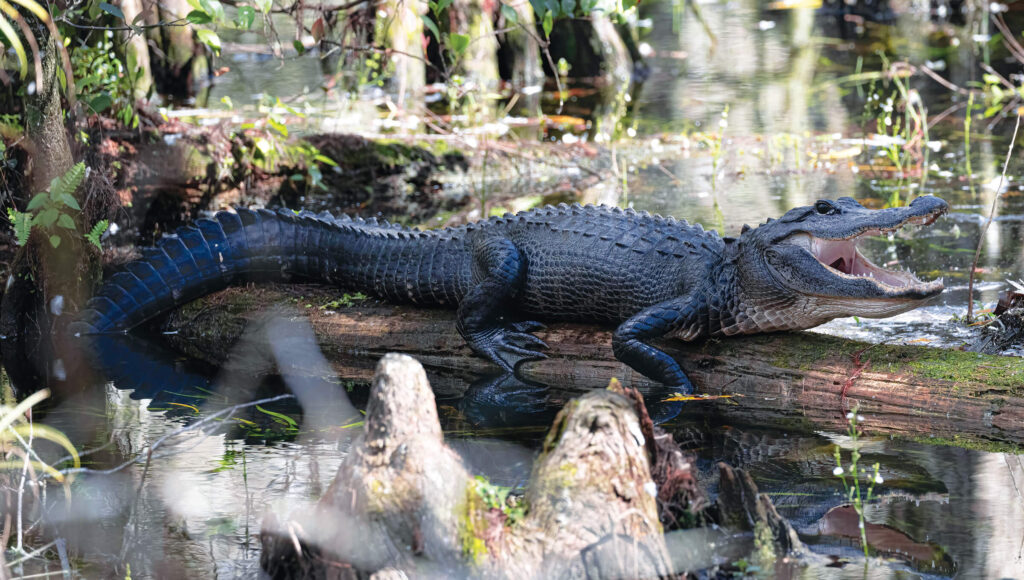
By TAMARA MAYER, CERP
Florida Gov. DeSantis announced his new Executive Order, one week after his second term inauguration, of $3.5 billion over the next four years for Everglades restoration, water quality initiatives, and water supply protections for Floridians.
This represents a $1 billion increase from the first similar executive order announced after his first inauguration.
Per Gov. DeSantis, this executive order is to “… protect taxpayers’ investment in Everglades restoration.”
But are taxpayers aware of the potential sacrifice to the natural wonders in South Florida that are being implemented by drilling for oil?
Yes, since the 1940s, nine wells have been pumping oil from a small section of the Everglades — low-grade crude used for lubrication and paving roads.
Beneath the state’s natural wonders, including Everglades National Park, Big Cypress National Preserve, Ten Thousand Islands National Wildlife Refuge, and Florida Panther National Wildlife Refuge, is oil — and it’s privately owned.
Although the federal government owns the surface of Big Cypress National Preserve, private entities own the oil and gas beneath the surface, also known as mineral rights.
In the early 2000s, there was an attempt by the state and federal government to buy the mineral rights covering Big Cypress, Ten Thousand Islands National Wildlife Refuge, and Florida Panther National Wildlife Refuge. Unfortunately, the deal fell through and there has been no additional pursuit since.
This situation presents a challenge because when private companies want to extract oil and gas from public lands (and waters), they enter into lease agreements with the government and pay certain fees and royalties on what is extracted. In other words, taxpayers collect a share of the profits based on the value or volume of the oil or gas realized.
However, this is not the case with privately-owned mineral rights. Since the mineral rights are privately held and below the surface, no lease agreement is required nor royalties paid to any state, local, or federal government (or taxpayers) for any oil/gas extracted.
In the case of Big Cypress, the private entities’ lessee, Burnett Oil Company, needed to obtain an access permit from the National Park Service in addition to state-issued permits from the Florida Department of Environmental Protection (FDEP) to “hunt” for oil in the Preserve back in 2017 and 2018.
In general, the National Park Service allows oil exploration and development “as long as the activities comply with strict environmental protection measures.”
This requirement, as well as state environmental permitting requirements, appears to have been ineffective in the case of Burnett Oil.
State regulators usually require mitigation plans in advance of any impacts to wetlands. But when Burnett Oil conducted seismic testing in Big Cypress, it was not required to provide compensatory mitigation before driving 33-ton vehicles off-road through Preserve wetlands to hunt for oil.
This exploration has left behind miles of scars in the environmentally sensitive lands. Now Burnett Oil wants to be allowed the same mitigation leniency for filling 30+ acres of wetlands.
This is in the disguise of submitting Environmental Resource Permit and State 404 Permit applications for the construction of two pairs of limestone drilling pads and access roads for exploratory drilling, which were withdrawn in February 2022 after they failed to respond multiple times to FDEP requests for additional information.
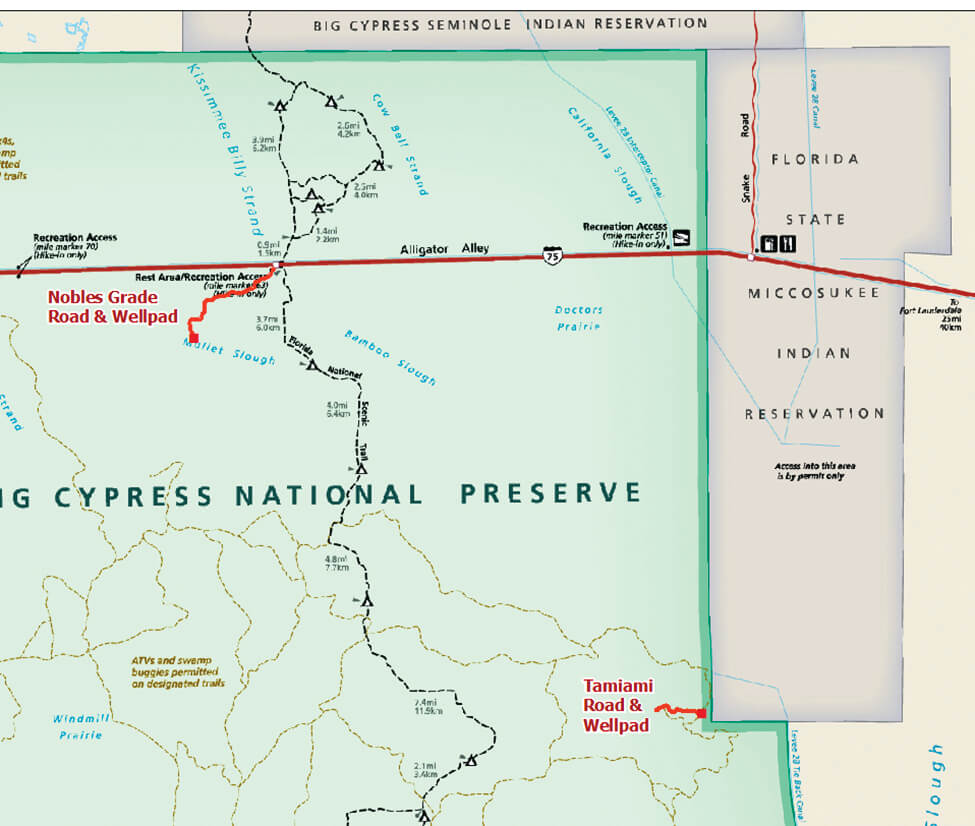
Although FDEP encouraged Burnett Oil to withdraw their plans until more information was submitted, particularly information on remediation, battle lines appear to be forming between Burnett Oil and other drilling companies with environmental groups and the Miccosukee Tribe of Florida.
Reasons to prevent drilling in the Everglades range from scientific to pragmatic. For the existing oil fields built decades ago, only 31 million barrels of oil have been produced; for comparison, that’s less than what Texas produces in a week. Biologists argue that the ecological injury from new wells could be grave to habitat and wildlife. However, Gove. DeSantis offers the best reason to not drill for oil in the Everglades with his commitment of billions of dollars from taxpayers for conservation and restoration of these natural areas, which is to “…leave Florida to God better than we found it!”●










